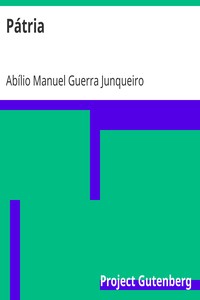Pátria
Author: Abílio Manuel Guerra Junqueiro
Bookshelves: Fiction, Literature, Category: Poetry

Summary
"Pátria" by Abílio Manuel Guerra Junqueiro is a dramatic poem written in the late 19th century. This work blends elements of satire and epic lyricism, focusing on the challenges and hopes of a nation overcoming its historical decline. The narrative delves into themes of patriotism, identity, and the burden of monarchy, making it a poignant reflection on the state of Portugal. The opening of the poem sets a tumultuous scene, depicting a stormy night at the king's castle, where discussions unfold among nobles about the state of the nation and the integrity of their leadership. As the characters engage in dark humor and cynical commentary on their king's ineffectiveness, the arrival of a madman—a character representing the suffering and marginalized voices of the people—foreshadows the impending crisis. The doido's haunting songs echo the historical grievances and aspirations of a forgotten populace, illustrating a stark contrast between the opulence of the court and the desolation of the common folk outside. Overall, the beginning captures the essence of the socio-political tensions of the time, inviting readers to grapple with the deep-rooted issues faced by their homeland. (This is an automatically generated summary.)
 LibraryManager
LibraryManager